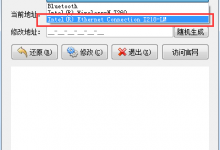WordPress用户密码加密及验证原理是wordpress开发者必须掌握的东西,虽然直接使用wordpress提供的函数也能做到,但在对接第三方用户系统时你就得知道怎么计算的。WordPress用户密码加密及验证函数实现比较简单,官方以及将其写成了不需要依赖别的文件的PHP类,可以直接拿来使用。文件位于:/wp-includes/class-phppass.php
最近因为wordpress核心太多功能用不上,导致速度特别慢,让我有了使用PHP重写网站前端的念头。按照我的想法,后端仍然使用wordpress管理,前端抛弃wordpress核心,使用PHP+mysql实现。据我测试这样实现响应时间可以缩短到10ms,远远小于现在的100ms。并且即使分离后的前端出问题,也能无损切换到目前的状态,wordpress的主题模板仍然可用使用。
如果没有用户系统,仅仅是作为展示站,实现起来就非常简单。但代码狗已有1W+用户,肯定不能只实现展示效果,因此如何将分离后的前端与wordpress后端联系起来是个难题。要想实现这些功能,首先要解决的就是清楚wordpress用户账户密码加密解密办法,然后是cookie的设置与验证,这个先放一边,下一篇再讲。
加密解密验证源码如下:
<?php
/**
* Portable PHP password hashing framework.
* @package phpass
* @since 2.5.0
* @version 0.5 / WordPress
* @link https://www.openwall.com/phpass/
*/
#
# Portable PHP password hashing framework.
#
# Version 0.5 / WordPress.
#
# Written by Solar Designer <solar at openwall.com> in 2004-2006 and placed in
# the public domain. Revised in subsequent years, still public domain.
#
# There's absolutely no warranty.
#
# The homepage URL for this framework is:
#
# http://www.openwall.com/phpass/
#
# Please be sure to update the Version line if you edit this file in any way.
# It is suggested that you leave the main version number intact, but indicate
# your project name (after the slash) and add your own revision information.
#
# Please do not change the "private" password hashing method implemented in
# here, thereby making your hashes incompatible. However, if you must, please
# change the hash type identifier (the "$P$") to something different.
#
# Obviously, since this code is in the public domain, the above are not
# requirements (there can be none), but merely suggestions.
#
/**
* Portable PHP password hashing framework.
*
* @package phpass
* @version 0.5 / WordPress
* @link https://www.openwall.com/phpass/
* @since 2.5.0
*/
class PasswordHash {
var $itoa64;
var $iteration_count_log2;
var $portable_hashes;
var $random_state;
function __construct($iteration_count_log2, $portable_hashes)
{
$this->itoa64 = './0123456789ABCDEFGHIJKLMNOPQRSTUVWXYZabcdefghijklmnopqrstuvwxyz';
if ($iteration_count_log2 < 4 || $iteration_count_log2 > 31)
$iteration_count_log2 = 8;
$this->iteration_count_log2 = $iteration_count_log2;
$this->portable_hashes = $portable_hashes;
$this->random_state = microtime();
if (function_exists('getmypid'))
$this->random_state .= getmypid();
}
function PasswordHash($iteration_count_log2, $portable_hashes)
{
self::__construct($iteration_count_log2, $portable_hashes);
}
function get_random_bytes($count)
{
$output = '';
if (@is_readable('/dev/urandom') &&
($fh = @fopen('/dev/urandom', 'rb'))) {
$output = fread($fh, $count);
fclose($fh);
}
if (strlen($output) < $count) {
$output = '';
for ($i = 0; $i < $count; $i += 16) {
$this->random_state =
md5(microtime() . $this->random_state);
$output .= md5($this->random_state, TRUE);
}
$output = substr($output, 0, $count);
}
return $output;
}
function encode64($input, $count)
{
$output = '';
$i = 0;
do {
$value = ord($input[$i++]);
$output .= $this->itoa64[$value & 0x3f];
if ($i < $count)
$value |= ord($input[$i]) << 8;
$output .= $this->itoa64[($value >> 6) & 0x3f];
if ($i++ >= $count)
break;
if ($i < $count)
$value |= ord($input[$i]) << 16;
$output .= $this->itoa64[($value >> 12) & 0x3f];
if ($i++ >= $count)
break;
$output .= $this->itoa64[($value >> 18) & 0x3f];
} while ($i < $count);
return $output;
}
function gensalt_private($input)
{
$output = '$P$';
$output .= $this->itoa64[min($this->iteration_count_log2 +
((PHP_VERSION >= '5') ? 5 : 3), 30)];
$output .= $this->encode64($input, 6);
return $output;
}
function crypt_private($password, $setting)
{
$output = '*0';
if (substr($setting, 0, 2) === $output)
$output = '*1';
$id = substr($setting, 0, 3);
# We use "$P$", phpBB3 uses "$H$" for the same thing
if ($id !== '$P$' && $id !== '$H$')
return $output;
$count_log2 = strpos($this->itoa64, $setting[3]);
if ($count_log2 < 7 || $count_log2 > 30)
return $output;
$count = 1 << $count_log2;
$salt = substr($setting, 4, 8);
if (strlen($salt) !== 8)
return $output;
# We were kind of forced to use MD5 here since it's the only
# cryptographic primitive that was available in all versions
# of PHP in use. To implement our own low-level crypto in PHP
# would have resulted in much worse performance and
# consequently in lower iteration counts and hashes that are
# quicker to crack (by non-PHP code).
$hash = md5($salt . $password, TRUE);
do {
$hash = md5($hash . $password, TRUE);
} while (--$count);
$output = substr($setting, 0, 12);
$output .= $this->encode64($hash, 16);
return $output;
}
function gensalt_blowfish($input)
{
# This one needs to use a different order of characters and a
# different encoding scheme from the one in encode64() above.
# We care because the last character in our encoded string will
# only represent 2 bits. While two known implementations of
# bcrypt will happily accept and correct a salt string which
# has the 4 unused bits set to non-zero, we do not want to take
# chances and we also do not want to waste an additional byte
# of entropy.
$itoa64 = './ABCDEFGHIJKLMNOPQRSTUVWXYZabcdefghijklmnopqrstuvwxyz0123456789';
$output = '$2a$';
$output .= chr(ord('0') + $this->iteration_count_log2 / 10);
$output .= chr(ord('0') + $this->iteration_count_log2 % 10);
$output .= '$';
$i = 0;
do {
$c1 = ord($input[$i++]);
$output .= $itoa64[$c1 >> 2];
$c1 = ($c1 & 0x03) << 4;
if ($i >= 16) {
$output .= $itoa64[$c1];
break;
}
$c2 = ord($input[$i++]);
$c1 |= $c2 >> 4;
$output .= $itoa64[$c1];
$c1 = ($c2 & 0x0f) << 2;
$c2 = ord($input[$i++]);
$c1 |= $c2 >> 6;
$output .= $itoa64[$c1];
$output .= $itoa64[$c2 & 0x3f];
} while (1);
return $output;
}
function HashPassword($password)
{
if ( strlen( $password ) > 4096 ) {
return '*';
}
$random = '';
if (CRYPT_BLOWFISH === 1 && !$this->portable_hashes) {
$random = $this->get_random_bytes(16);
$hash =
crypt($password, $this->gensalt_blowfish($random));
if (strlen($hash) === 60)
return $hash;
}
if (strlen($random) < 6)
$random = $this->get_random_bytes(6);
$hash =
$this->crypt_private($password,
$this->gensalt_private($random));
if (strlen($hash) === 34)
return $hash;
# Returning '*' on error is safe here, but would _not_ be safe
# in a crypt(3)-like function used _both_ for generating new
# hashes and for validating passwords against existing hashes.
return '*';
}
function CheckPassword($password, $stored_hash)
{
if ( strlen( $password ) > 4096 ) {
return false;
}
$hash = $this->crypt_private($password, $stored_hash);
if ($hash[0] === '*')
$hash = crypt($password, $stored_hash);
# This is not constant-time. In order to keep the code simple,
# for timing safety we currently rely on the salts being
# unpredictable, which they are at least in the non-fallback
# cases (that is, when we use /dev/urandom and bcrypt).
return $hash === $stored_hash;
}
}
wordpress用户密码加密后的密文格式:
$P$BcSda3/tRXQcRZMPj3cUI0jZJFdMgL0
$P$BNclJc4wbM.vSjKPYxKggDPtw3siXQ0
同样的密码每次加密结果都不同。
第一段:$P$格式固定
第二段:只有一个字符。若php版本大于5.0则为B,否则为9
第三段:8位salt
第四段:22位,真正加密后的密码
PHP版本低于5.0则使用的md5加密,具体加密方法这里不详细说了,已经有网友发布了相关文章,高于则使用本文加密方式。
简单测试
$wp_hasher = new PasswordHash( 8, true );
print($wp_hasher->HashPassword('你的密码'));
//$check = $wp_hasher->CheckPassword( '你的密码','$P$BHNlQVxpEEuKKtm2q539mCWsKA8dwq/' );
//print($check);将生成的密码直接替换掉数据库中的密码,能够正常登录。注意:memcached缓存会存储密码,测试时需刷新缓存!





评论 (0)